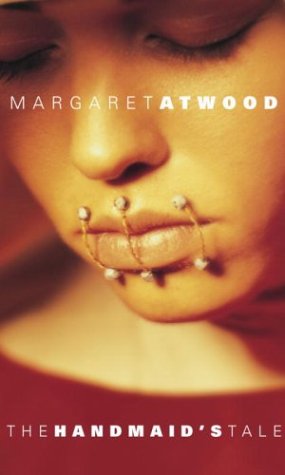 I was 22 years old when I read Margaret Atwood’s ‘The Handmaid’s Tale.‘ I remember being angry for days after I read it. My father, who read it at the same time, laughed at me and told me to be a more critical reader. He said it was a novel that typified feminist hysteria. My mother gave him one of those ‘shut the fuck up’ looks, and he very wisely did.
I was 22 years old when I read Margaret Atwood’s ‘The Handmaid’s Tale.‘ I remember being angry for days after I read it. My father, who read it at the same time, laughed at me and told me to be a more critical reader. He said it was a novel that typified feminist hysteria. My mother gave him one of those ‘shut the fuck up’ looks, and he very wisely did.
The novel is set in a dystopian Christian theocracy. The protagonist is a woman named Offred, who is kept as a reproductive concubine by Commander Fred, a man of power and position in the Republic of Gilead government. As you might have guessed, she has no name; she is ‘Of Fred’. Enslaved for her uterus by the state. Atwood pulled absolutely no punches in painting the horrific, predictable outcome of a system which views women only for their breeding potential and their domestic labour.
I won’t give you a synopsis of the story. There is one at Wikipedia, and there is an excellent BBC audio interview with the author discussing the book in 2003. In 2009, Canadian parents complained that the book was too brutal to be taught in schools.
Here, strangely blinkered now, is an excerpt from a New York Times Review of the book by Mary McCarthy, in 1986
A fresh postfeminist approach to future shock, you might say. Yet the book just does not tell me what there is in our present mores that I ought to watch out for unless I want the United States of America to become a slave state something like the Republic of Gilead whose outlines are here sketched out.
Atwood herself has repeatedly rejected the label of sci-fi for this novel, although it won the very first ever Arthur C. Clarke award. She insists that science fiction is a genre dealing with thing that could not happen today or in the near future. She prefers the term speculative fiction. 30 years ago, my father would have disagreed with her. Now, I doubt there’s anyone in the Western World who would disagree with her, but quite a few Republicans who might happily use it as a blueprint.
If you have never read ‘The Handmaid’s Tale’, you really should. It is, in my view, one of Atwood’s most powerful novels. And in the light of the tone of discourse currently pervading the US presidential race, it is incredibly timely.
There is a film of the book, directed by Volker Schlöndorff. It really doesn’t measure up to the book at all. It’s toned down considerably for the screen.

Yup Yup, and I love your pic on fb. You take a beautiful pic my dear. Haven’t quite figured out why you hide so much but y our beautiful. I am right and you are wrong ;))))))
Just read the book, Frank. 😛
Ok
I read The Handmaid’s Tale in 1985,when it was first published. I truly loathed it, because I’m basically a HEA kind of person. But every time I hear of or read about another attack on personal freedom by self-identified Christians, I think of this book. And, fundamentally, I agree with your belief that it is – frighteningly – becoming ever more timely.
As an aside, when writing this comment, I reached an impasse on what term(s) to use to describe those people, in many different political, cultural, and religion-based groups, who are actively seeking to curtail personal freedoms in the US, particularly as they apply to or are exercised by women. I found that the adjectives I would have used have all been usurped and, ultimately, perverted by these people. They are neither Christian, nor religious, nor even conservative; not even dogmatic, in the correct sense of the word. Through their hate-filled speech and action, they have corrupted words and concepts that should be, at best, terms of respect, and at the very least, a neutral description.
I,too, read this book when it first came out (as a young lesbian struggling with radical feminism, which I eventually rejected because I just enjoy filthy sex and money too damn much 😉 I have been thinking about it frequently in US election season, not just the men in power, but the women. When I look at Mitt Romney’s wife and listen to her speak, when I ask myself why in the world is there such a thing as a woman who would vote Republican today, indeed even a lesbian woman (it’s true, I know at least one!)I remember the character of the wife. She didn’t carry the baby. I remember (albeit somewhat vaguely) the baby she didn’t carry, and the power that gave her (economic/class), and yet took away. I am considering rereading to better understand the subtleties, though I don’t think it will help my current debilitating insomnia. Is it December yet?